How My Mothers Shaped Me
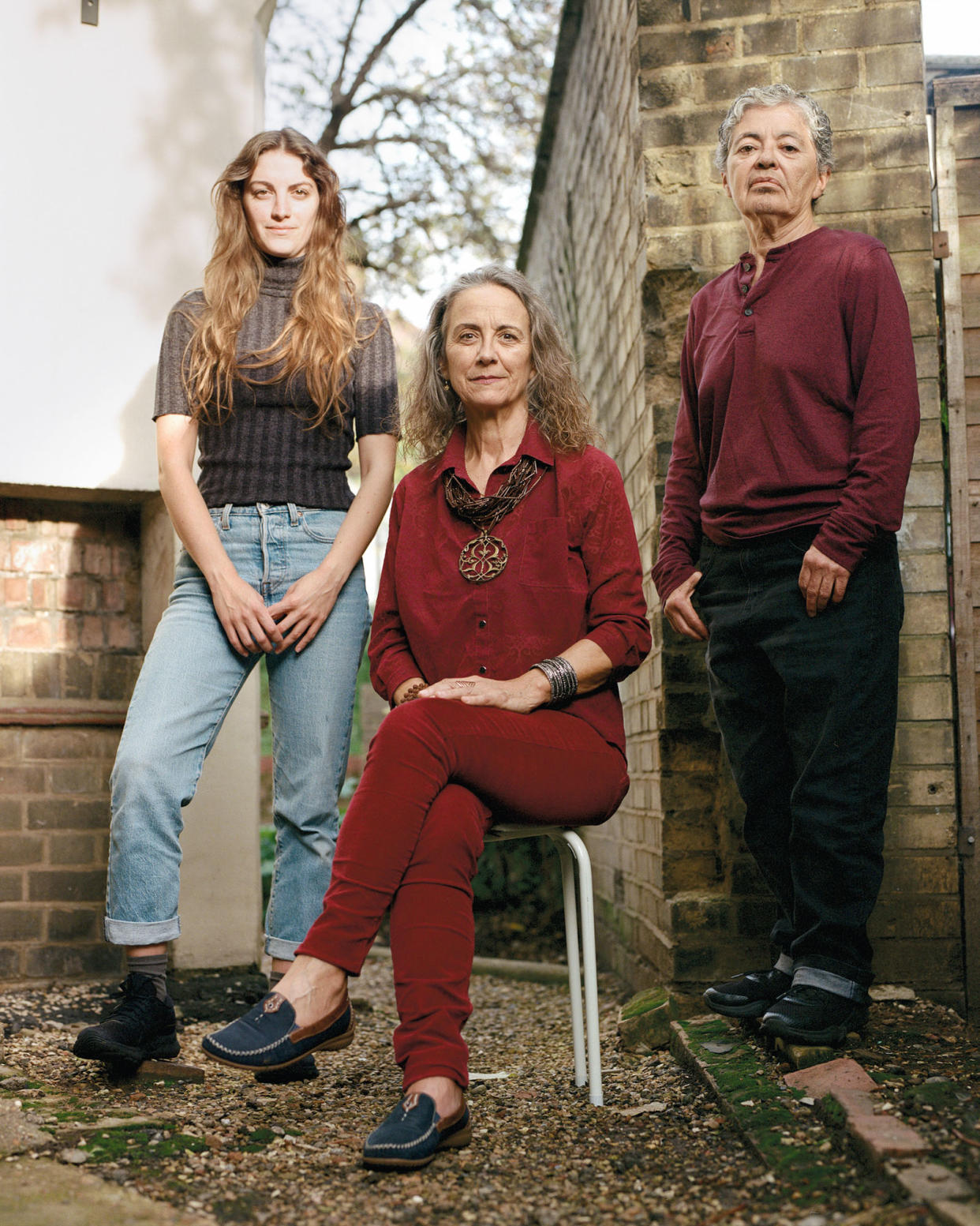
My mothers and I in 2022 near my home in London, United Kingdom. I am on the left, Mama Flavia in the middle, and Mama Lu on the right. They were both visiting to celebrate my 30th birthday. Credit - Quetzal Maucci
I was adopted by my mother, Mama Lu, on my 31st birthday. It was October 23, 2023, and we were finally being recognized legally as mother and daughter—a recognition Mama Lu and I sought for many years. Though Mama Lu and Mama Flavia had long been separated, we were finally being seen as a family.
It all happened on a video call. I was sitting in my living room in London and Mama Flavia was sitting next to me. Both of us were looking at a laptop screen while Mama Lu was sitting in the San Francisco courthouse. The whole process felt so informal that I forgot to call Judge Monica “Your Honor” in the courtroom. Judge Monica didn’t seem to mind. Who can prepare you for these moments?
During the hearing, Judge Monica gave us time for speeches. Many of our family and friends, showing solidarity on video, gave emotional speeches about us and our journey. It was healing. And it reminded me of who I am—who I had always been. I am the daughter of two migrant and queer women from Peru and Argentina: Flavia and Lucrecia. Or as I called them, Mami y Mamú. And while our journey as a family took twists and turns, they are the people that nurtured me. That shaped me.
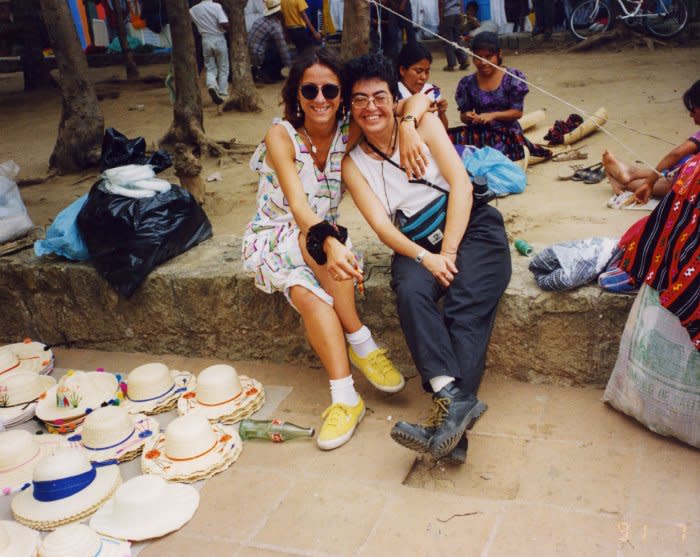
In the early 1980s, Mami and Mamú met while working at The Women’s Building, a women-led non-profit arts and education organization in San Francisco. Located in the Mission District, the neighborhood at the time was bustling with political action, coffee houses, cinemas, theaters, and most importantly, Latinx LGBTQIA+ community spaces. The Mission was the center of my mothers’ community. It was a community that lived together and depended on one another. It was where they felt safe.
Both my mothers remember the day they met and the strength of their first initial attraction to one another. They bonded over their love for their respective countries and their fears over the oppression that had occurred across South America under military dictatorships. They were deeply involved in attending meetings, protests, and demonstrations for the political movements they cared about, both in the U.S. and in South America. It was a relationship rooted in activism, respect, debates, dancing, and rallying for the rights of women, migrants, and LGBTQIA+ communities.
In 1992, after knowing each other for more than 10 years, they decided to raise me together. While Mama Flavia was pregnant with me, Mama Lu read me books and played Latin American folklore singers like Violetta Parra. They were fierce mothers and they were also stubborn mothers. Mujeres formadas de la luna y la oscuridad y todas las estrellas más brillantes. Women formed of the moon and the darkness and of all the brightest stars.
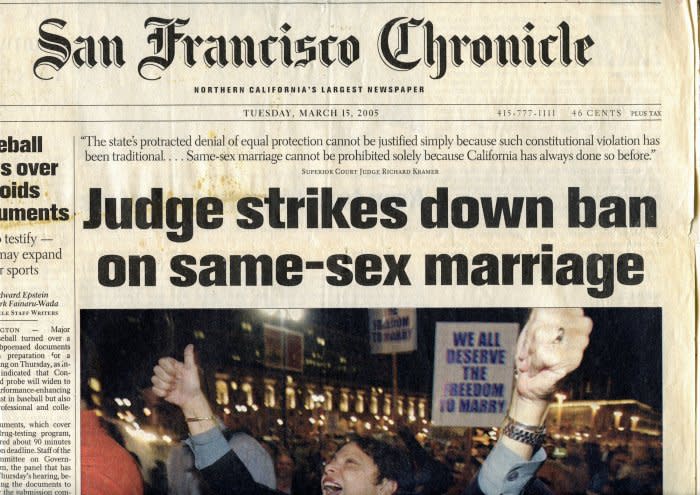
anymore, I remember feeling angry and upset that we were still having to fight for marriage rights of same-sex couples. It wasn't until 2013 that same-sex marriage became legal. Quetzal Maucci
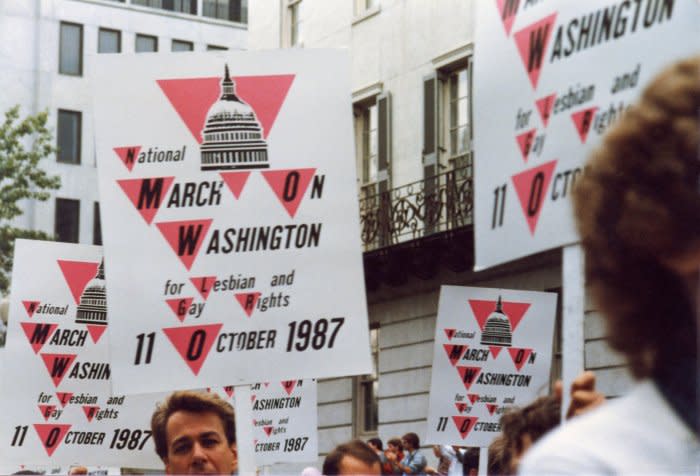
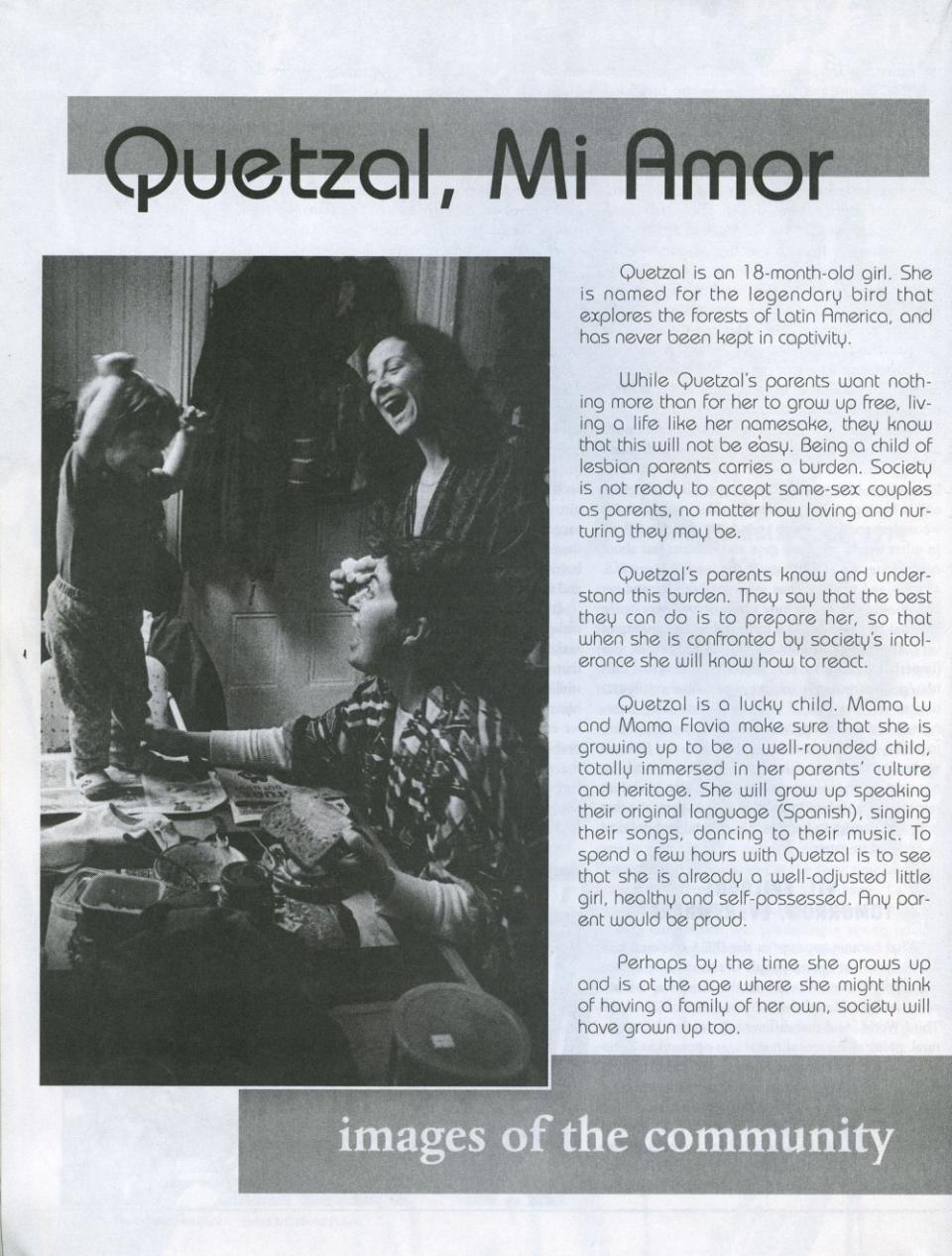
Rocamora wrote: “Perhaps by the time Quetzal grows up and is at the age where she might think of having a family of her own, society will have grown up too.” This reflection is what started my own project about my family. And I question: has society finally grown up? I am now 31 years old and my mothers are in their 60s. Courtesy of Rick Rocamora
While growing up, they challenged me to question what I saw, what I needed, and what I thought. Mama Lu taught me to consider the words I used before speaking; my thoughts muddled between English at school and Spanish at home. She shared her passion of politics and writing with me from Malcolm X’s biography to Jean-Paul Sartre to bell hooks. Mama Flavia also supported me in discovering what I love. She shared her strength and vulnerability with me. They both surrounded me with their cultures, language, and protection, while encouraging me to find my own understanding of self.
I fought with my parents, too—as children often do. We celebrated birthdays and went to see movies. We had pizza on Fridays and hosted family gatherings with abuelitas, cousins, pets, wine, and dancing. We were an ordinary family. And yet, while my mothers created a home wherever they could, I hid them away. While they took care of me, I lied about who was who. I hid my mothers away because society taught me to hide them away. I didn’t feel safe talking about us.
There is an image of family that society built up that for many years did not include us. An image of a family that was built on a man and a woman and a white picket fence. A reality that was not mine. During the 1990s, in the era of “Don’t Ask Don’t Tell” and the “Defense of Marriage Act,” the systems and constructs that were in place did not represent or support family structures like ours. Not to mention, my mothers had moved from different South American countries to a city where they both never truly felt at home. We were amongst very few families who resembled ours and it was new terrain for my mothers. And while they loved each other, those pressures affected us as a family.
When I reminisce about my childhood, it is tricky for me to remember the time before my mothers separated. It is difficult to remember them together. Foggy from what I feel I remember and what actually occurred. Foggy from the many moves due to financial stress. Foggy in the distant way childhood memories can become. I know my moms’ relationship was equally difficult and loving. They were protesting for their lives and the lives of others. They were trying to live.
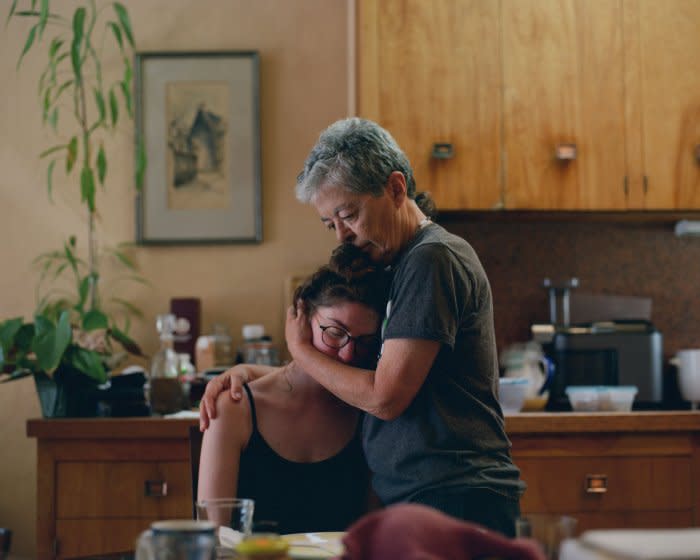
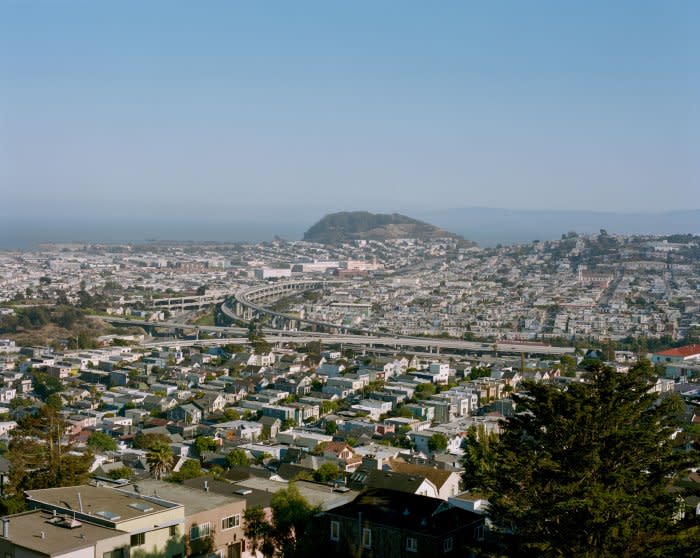
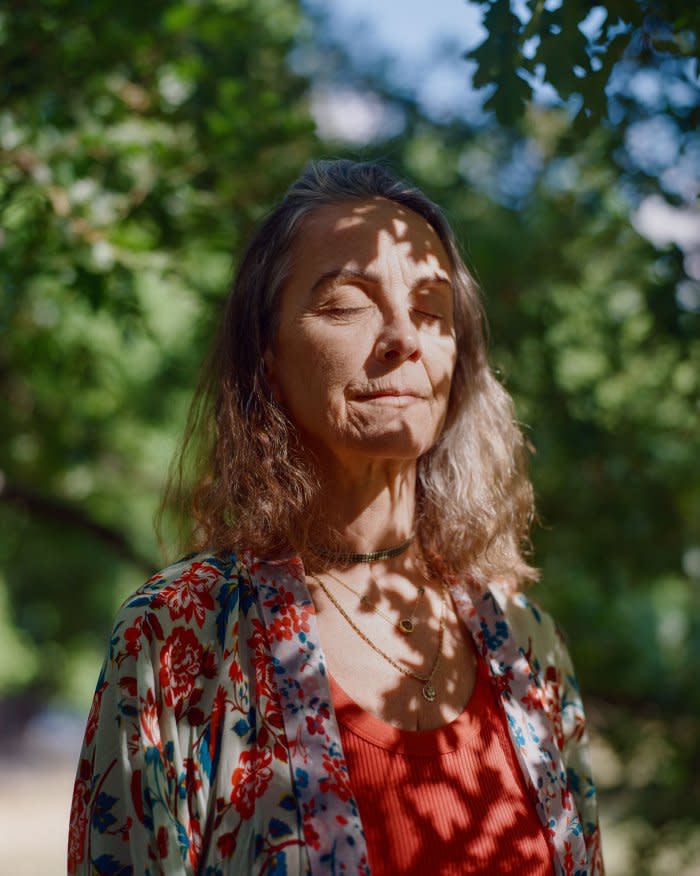
In 1996, they separated because of their own conflicts. Issues that were rooted in what many couples might struggle with: how we love, how we argue, and how we come back together. The separation affected me like any parental separation will inevitably affect any child. And yet, they continued to be my parents while living apart and raising me under the pressures from both anti-migrant and anti-LGBTQIA+ discrimination.
For so long, I struggled from the internalized stigma that grows out of society’s idea of what the perfect family should be—of a family that I’ve found does not exist and perhaps never did. My family is not heteronormative or conventional. Still, we are a family. A family that is steeped in stories, challenges, joy, and differences. A family whose relationships transform over time. A family that keeps giving. I am grateful for having what I have always known I had: two mothers who loved me and gave me what they could.
Read More: The Love Story of My Chosen Family
My parents’ sexuality and their gender had little to do with who I became. It was their knowledge, their personalities, their ways of being, and the community they gave me that mattered so much more. This community of women, Latinas, queers, activists, and artists I grew up around—they became my guides, my support, and my family. Above all, they gave me the space to stand up on my own. A space where I felt safe and seen.
Today, I return to these guides who are now in their late 60s and 70s, and they still hold me. Their support and my mothers’ courage is what brought me to this moment, acknowledging who we became despite all the cracks. And I am proud of us. Proud of the people we are. My mothers are more than mothers, more than women, more than migrants, more than queerness. They’re more. And they will always be.
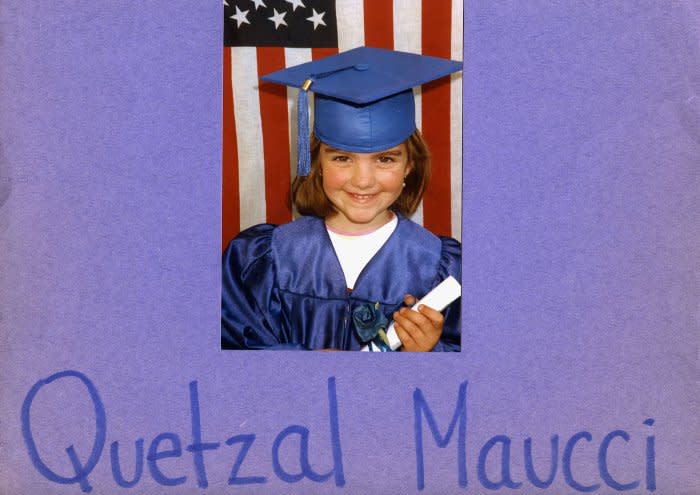
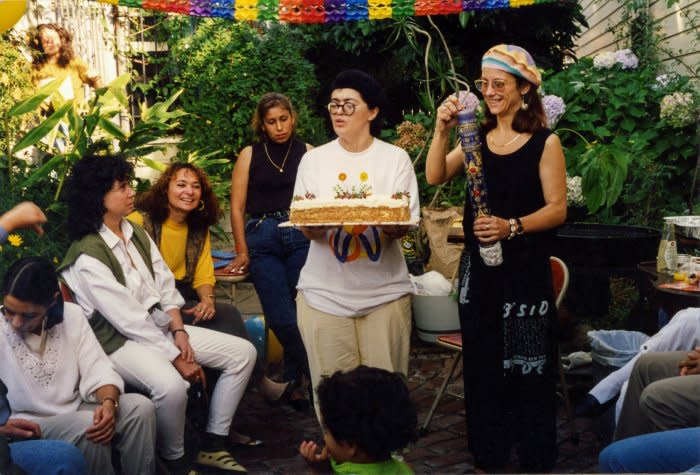
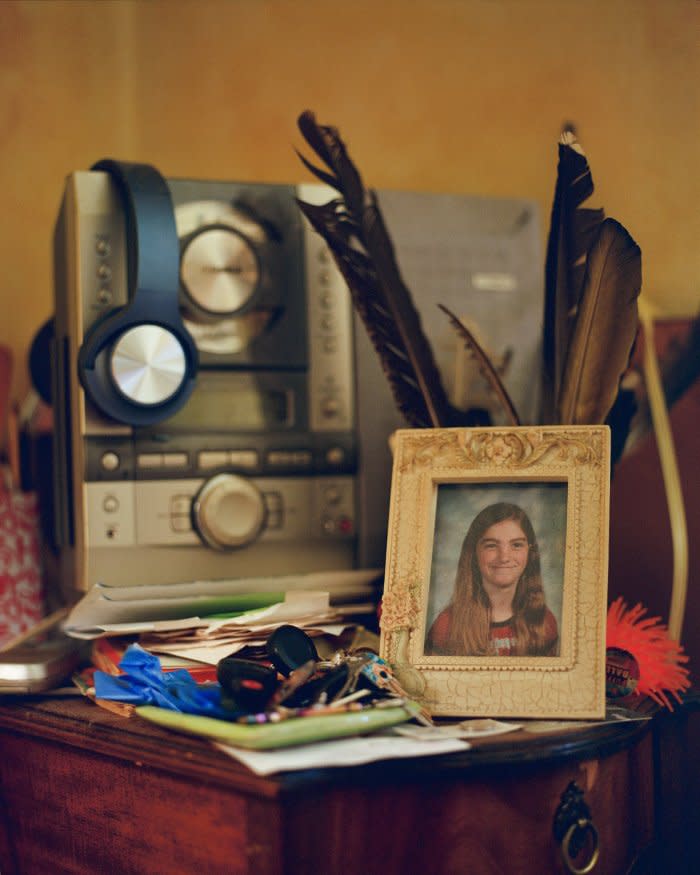
It took five years for the legal system to accept our paperwork and bind us as mother and child. Maybe it took five years because of the pandemic. Or maybe it was something else. Mama Lu would call the lawyer, and then other lawyers, and then the family court, and then she began to represent herself. For the past five years, with the little money I had, I traveled home during the summer in hopes of finalizing and confirming a court date.
Every year, we were told something new. The paperwork would be lost, or it was on hold or forgotten. Mama Lu felt agitated. I tried to calm her down. I told her that she will always be my mother no matter what. A piece of paper would never change that. Society cannot define who we truly are to one another. She knew that, too. And yet, I felt deep down that she had her heart set on this moment since the day I was born.
After years of stress and thousands of dollars later, on that fateful October day, Judge Monica announced we were now legally mother and child. Every time a child is adopted in this courthouse, the child receives a teddy bear. Mama Lu decided to mail me the bear from San Francisco to London along with the paperwork declaring our legal bond.
This small brown bear now symbolizes one of my mothers finally becoming my mother. The mother she has always been.
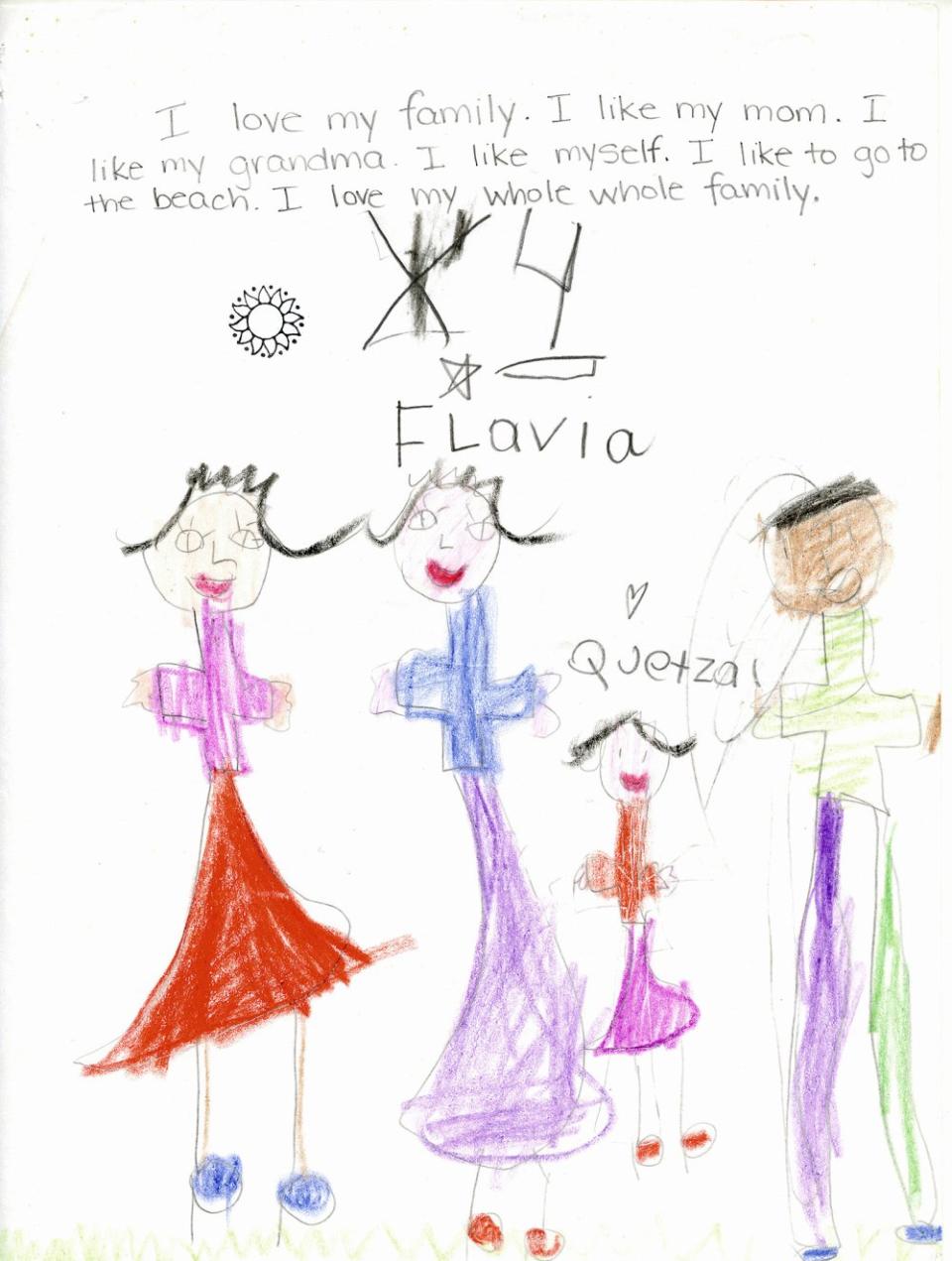
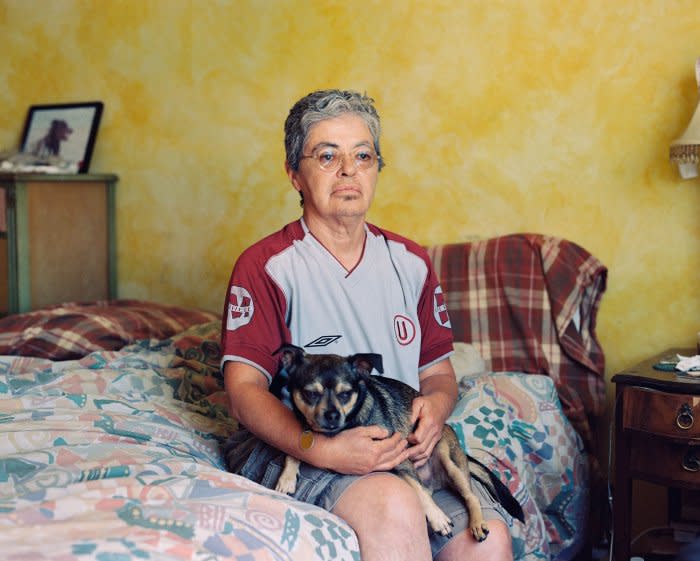
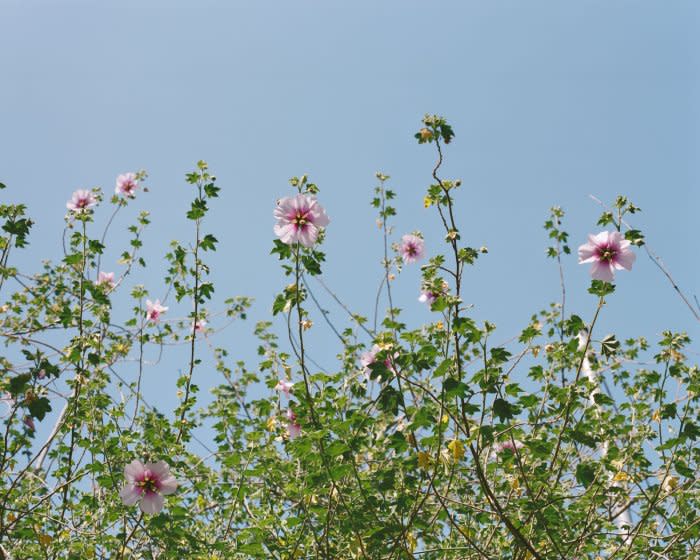
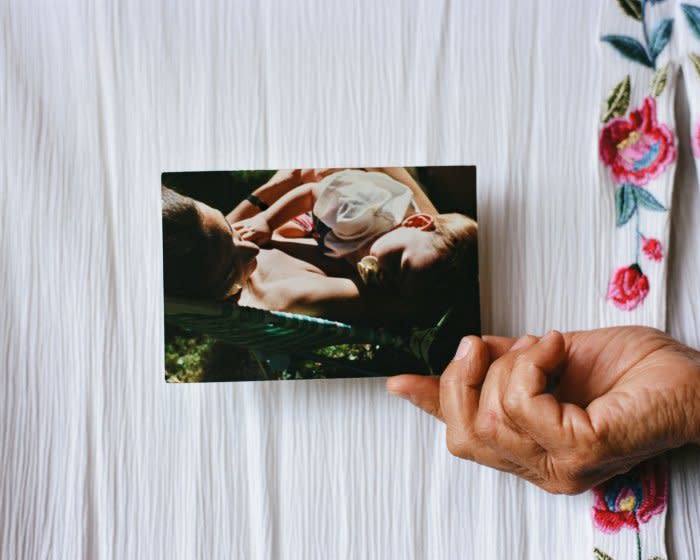
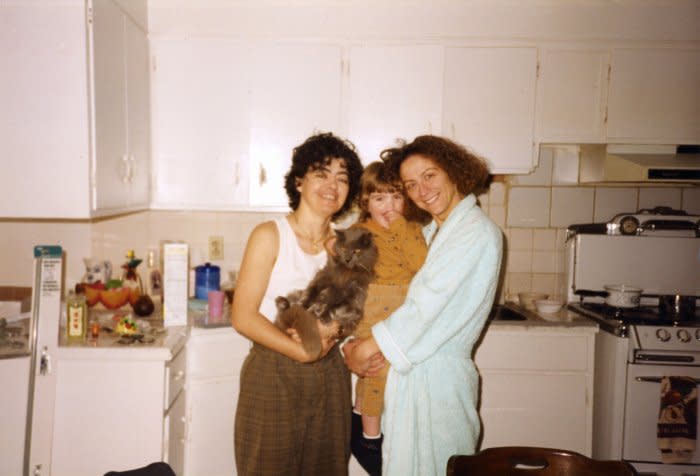
Contact us at letters@time.com.


